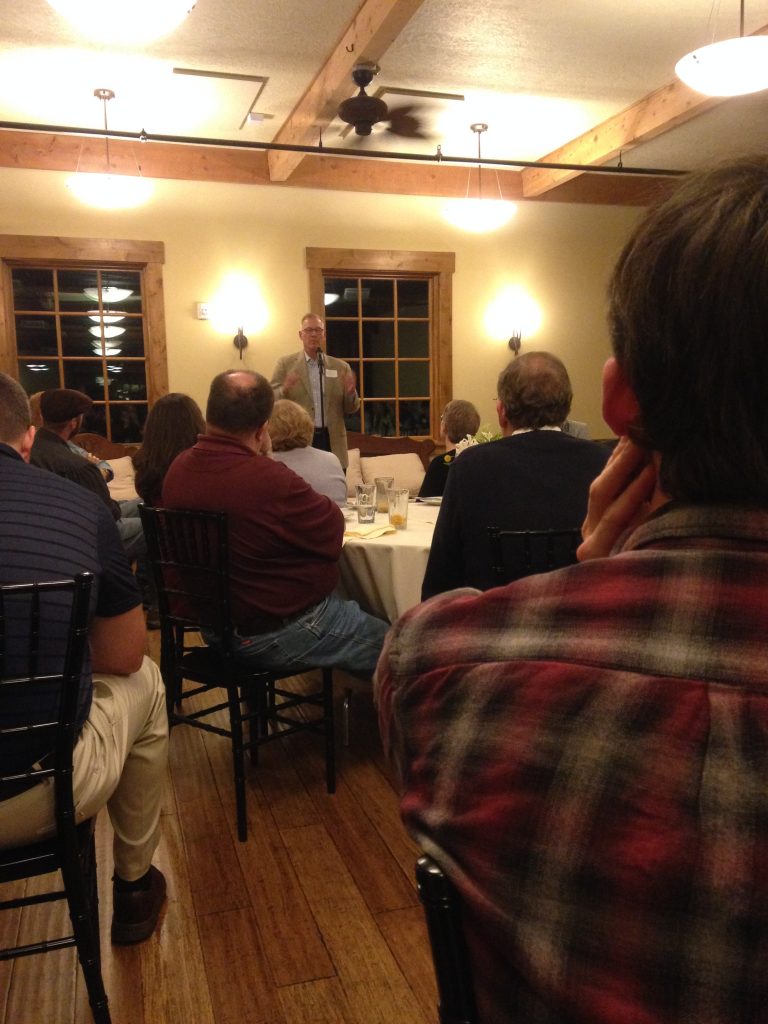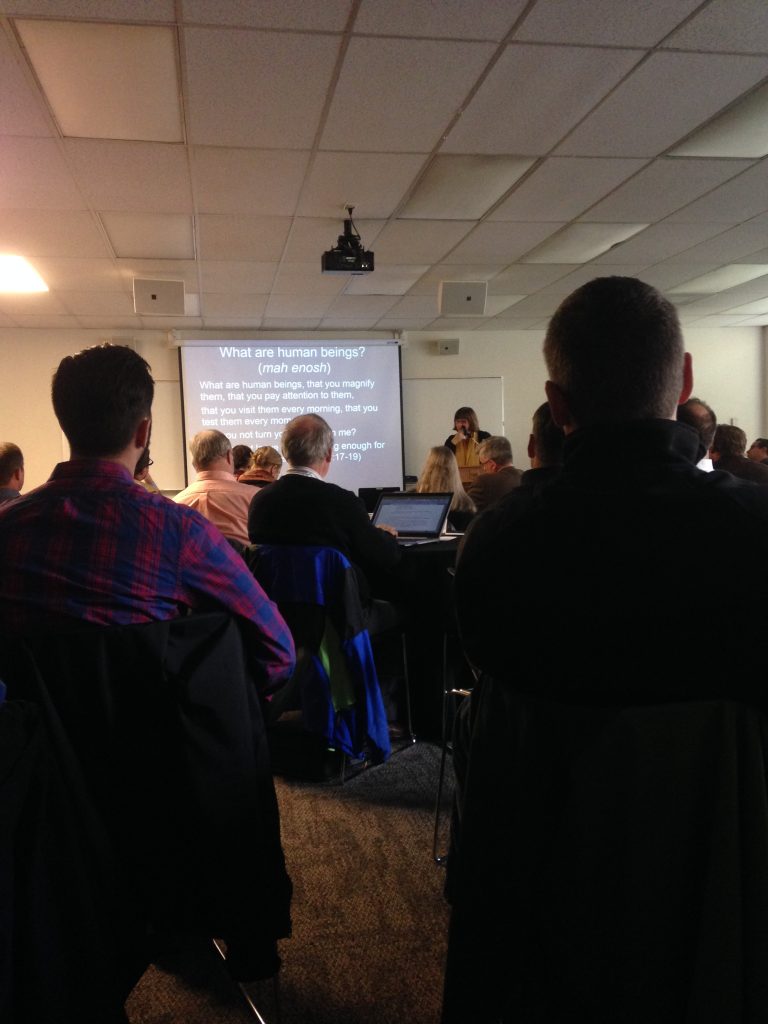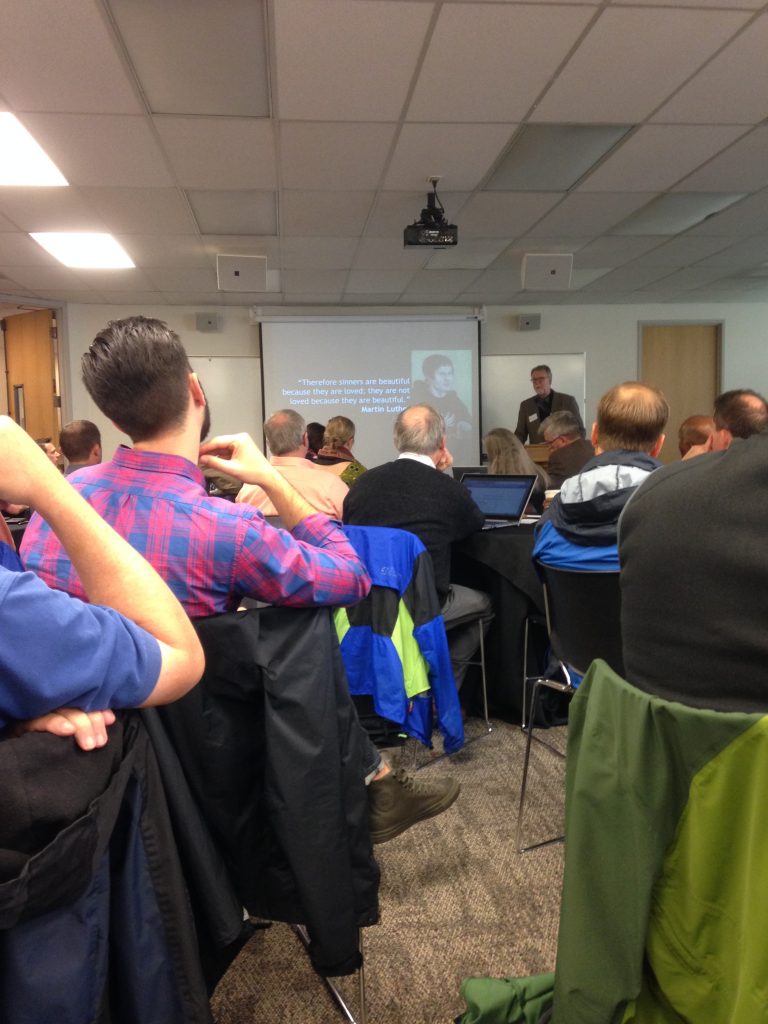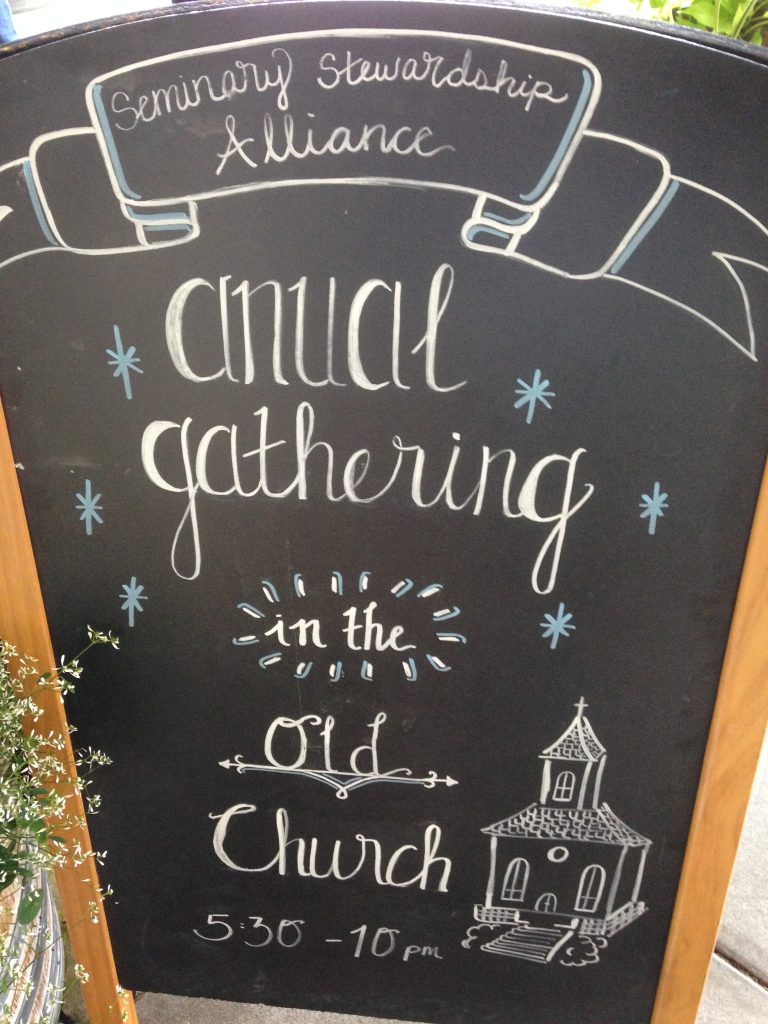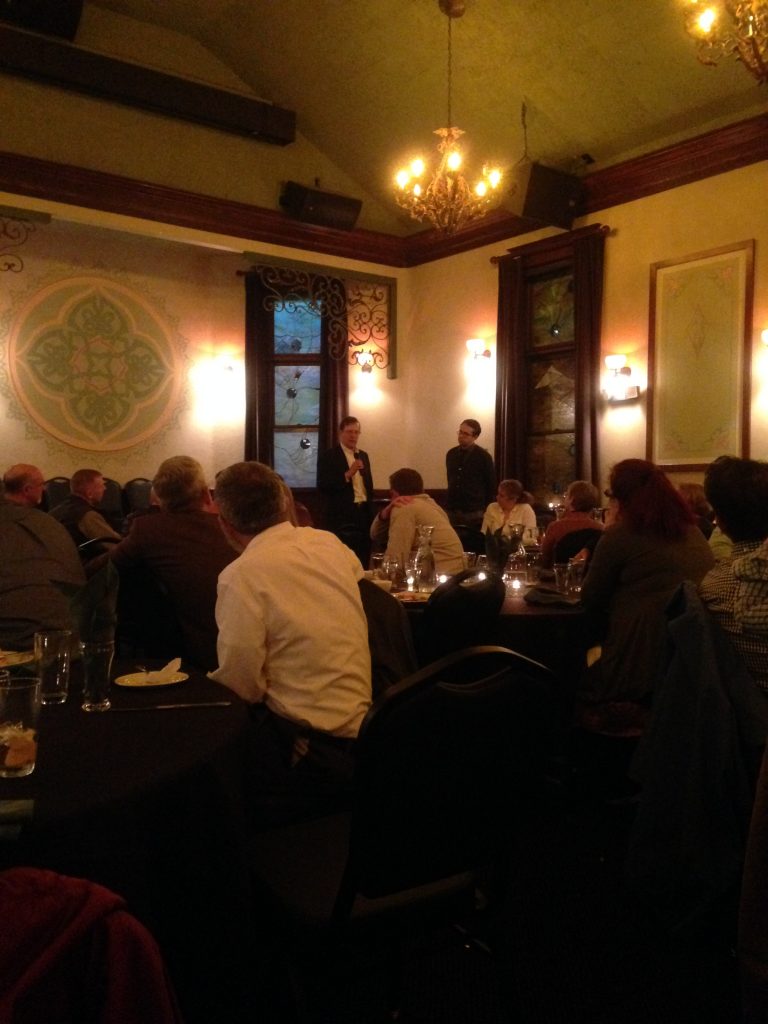This weekend I had the privilege of attending the Seminary Stewardship Alliance’s (SSA) annual gathering. Without reciting their mission statement, my impression is that the SSA convenes Christian higher education institutions – notably seminaries but also other confessional higher education contexts – to cultivate the places of pedagogy which train church leaders and provide resources to the Church universal and wider world as life giving places. As I just came into contact with the organization, I cannot speak in depth about its work or impact at the intersection of Christianity and ecology. However, I was struck by the level of engagement in this area among its affiliate institutions and among the related organizations carrying out this work.
A sample of contemporary seminary activities is as follows:
Princeton Divinity School has a program called farminary which integrates theological education with agricultural practice.
Columbia Theological Seminary hosting the Healthy Seminary, Healthy Church initiative which has identified a gap in attention to healthy practices in seminary education and is therefore focusing here to improve the health – social and ecological – of the wider Church. Columbia also has a garden project.
The above fit well into an initiative currently underway at Duke Divinity to create a rooftop garden and nearby fruit orchard, utilizing this place as a teaching asset and place of enjoyment for the school.
I learned of other initiatives outside of the seminary context, as well:
Colby May has an organization called LIT, which provides energy audits to congregations. LIT emphasizes the low-hanging fruit of behavior change to reallocate wasteful energy spending to fruitful spending in missions. A promising model.
A Rocha is a Christian organization working on ecological issues both domestically and internationally.
The conference was a full schedule packed into a short period between Thursday and Saturday.
At the welcome dinner Thursday night, the head of Portland’s Parks and Recreation, Mike Abbate spoke to us (in a personal capacity) about how Christianity and landscape architecture intersects in his life offering opportunities to create and maintain parks while working to improve public access to those parks without compromising conservation goals. Abbate is the author of a book called Gardening Eden: How Creation Care Will Change Your Faith, Your Life, and Our World.
Three Lutheran scholars provided theological and biblical modes of Creation care engagement. Benjamin Stewart developed a case for green burial as a grounding practice in Christian faith.
Dr. Shifferdecker of Luther Seminary spoke about her exegetical work on Job. One important note is the ways in which the book of Job offers powerful implications for recognizing intrinsic value in the non-human world.
Luther’s theology of the cross was also explored in its applicability for addressing the death and dying implicated in environmental crisis. The way in which the reality of the situation can be recognized while retaining hope was a theme evident throughout the conference.
Dr. Seth Bible of Southeastern Baptist Theological Seminary provided a stirring talk on the participation of conservative evangelicals in Creation Care work. The talk was deeply reflective and quite informative. I will hope to cross paths with this work again in the future.
In addition to speakers, the conference included two breakout sessions. The first was focused on diagnosing common problems and solutions in our geographical areas. The second was similarly themed, but organized based on commonality of tradition rather than geography. Perhaps as to be expected from a short discussion, revolutionary solutions did not emerge from the breakout sessions. Yet, it was insightful to get to hear from conference participants and learn more about their particular contexts.
After a full day Friday, we went to dinner in a private dining area of a large restaurant, McMenamins, which reserved a space for us in an ‘old church’.
While the room was being set up, I got to have a beer with a few of the participants and reflect on some of the more fine points of theological concern. Actually, discussion centered on how historical doctrinal concerns of the Church seem to be less and less important for modern church goers. I am now reminded of Fink and Stark’s (2005) model whereby churches that become overly doctrinal lost membership to up and coming church groups. Someone also brought up Lakoff’s strict father paradigm to diagnose the influence of patriarchal familial structures in forming theological, political, and other positions. Perhaps two more beers would be required to diagnose the implications of these points for engaging churches in ecological praxis.
The SSA began as an outgrowth of the nonprofit Blessed Earth which was founded by Dr. Matthew and Nancy Sleeth. Dr. Sleeth is a medical doctor turned evangelical Creation Care organizer who has made significant links between Climate Change, Christianity, and human health and is now working to organize Christians to address the role of human beings in their negative impact upon Creation.
Dr. Sleeth offered a reminder of the need to attend to the future generations and not be shortsighted. Though SSA is a young organization, it has committed itself to a great work.

